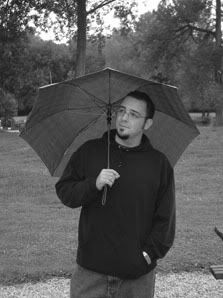Disclaimer: This piece is pure rambling and has not been edited or even re-read for logical errors or spelling/grammatical errors. And it probably won't ever be.
Four periods of American life have given rise to explosive literary output: Civil War, Roaring 20s/Great Depression, Post War Era (post WWII - I am including the mid 40's-60's here), and (dovetailing on the last one), Vietnam. The thing about the Civil War is that outside of the politically charged niche of slave narratives, most work on the Civil War that is considered to be of much quality was released co-terminously with the great writing of the 1920's and 30's. I have no causal relation here, although I imagine that the co-terminous existence of William Faulkner, F. Scott Fitzgerald, Ernest Hemingway, and John Steinbeck has something to do with it. Perhaps it is because the 20th century is the first time when a nation of letters was formed in the United States (not just New England/Baltimore, as was the first run at literary greatness on American soil (See: Melville, Hawthorne, Whitman, Thoreau, Poe, etc)). There have been renegade authors of note in the Gilded Age (how American is that?), most notably Samuel Clemens (Mark Twain) and Frank Norris.
The common theme to our literary success is fairly clear: loss. This is nothing new in terms of the grand scheme of western literature (Faust, Paradise Lost, the Inferno, King Lear and on and on and on and on), particularly since the major source of all our literature is the book of Genesis and the greatest loss that there could be - the loss of the ability to communicate on a level plane with the divine. However, for a society like outs that prides itself on being a Winner, such a self-reflective artistic trend is somewhat surprising. Perhaps this is the reason for our absurd adoration of ignorance. Do any of you read books any more? Let me rephrase that: do any of you read any books that are a) not assigned to you and/or b) That have not been approved by society's watchdogs by landing on the NY Times best sellar list (See: The DiVinci Code)? Why not? Is it because of the uncomfortable feeling that can only come from having a mirror placed in front of us as a people that shows everything that is unflattering as well as those aspects that are?
I don't really blame you - I mean, how masochistic do you have to be to want to curl up under the reading light and spend hours thrashing your schema and paradigm for our little life? All I can tell you is that if Odysseus never journed to the underworld, he never would have gotten home. I will end with a two quotes from T.S. Eliot, which I have found myself pondering quite a bit lately:
We will shall not cease from exploring, and the end of our exploration, we will return to where we started, and know the place for the first time.
*
(Come in under the shadow of this red rock),
And I will show you something different from either
Your shadow at morning striding behind you
Or your shadow at evening rising to meet you;
I will show you fear in a handful of dust.
PS:
Here are some authors/books from some of the eras discussed above that I find to be exceptional
Ishmael Reed: Flight to Canada; Mumbo Jumbo
William Faulkner: Light in August; Absalom, Absalom!; The Sound and the
Fury
Carolivia Herron: Thereafter Johnnie
Alice Walker: Meridian [(Beware of any of her later works though, neo-feminist dogma does little to aid and expand (and mostly hinders) the feminist argument, which at its core is an interesting and strong one)]
Lan Cao: Monkey Bridge
Tim O'Brien: Going After Cacciato; The Things They Carried (short story); Tomcat in Love
Kurt Vonnegut: Slaughterhouse Five, Cat's Cradle
William S. Burroughs: Junky; Naked Lunch; My Education
William S. Burroughs Jr.: Speed; Kentucky Ham
Paul Bowles: The Sheltering Sky
Frank Norris: McTeague
There are a ton more that warrant mention, but it just occured to me that you really don't give a shit, so I am going to shut up now.

No comments:
Post a Comment